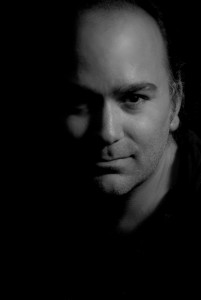Know a Nominee, Part 10: John Palisano
Welcome back to “Know a Nominee,” the interview series that puts you squarely between the ears of this year’s Bram Stoker Award nominees. Today’s update features John Palisano, nominated in the category of Superior Achievement in Short Fiction for “Splinterette.”
DM: Please describe the genesis for the idea that eventually became the work(s) for which you’ve been nominated. What attracted you most to the project? If nominated in multiple categories, please touch briefly on each.
JP: The short story “Splinterette” came to me while staying in Cupertino, California. We were in a slightly woodsy area and my room looked out into them. I imagined a creature made from the woods peeling off a tree, it having long sharp limbs. While my friends went out,
I filled an entire moleskine and passed out. I forgot about the story until I heard about the charity anthology for James Newman who’d been the serious victim of a falling tree branch. I never submitted the story because it never into any calls I spotted. It was a great fit for “Widowmakers.”
DM: What was the most challenging part of bringing the concept(s) to fruition? The most rewarding aspect of the process?
JP: The most challenging part is remaining emotionally true to the characters and allowing them to make poor choices you yourself wouldn’t make. The most rewarding aspect of the process is wrapping up and knowing the story made it more or less complete from idea and into a tangible form.
DM: What do you think good horror/dark literature should achieve? How do you feel the work(s) for which you’ve been nominated work fits into (or help give shape to) that ideal
JP: A great story should weave it’s way inside someone. It should illuminate some truth for the reader. It should make them feel something, and mostly for the characters. The best seem to stick inside your head and make you rethink something, or have made you learn about something new. You can experience the fear and dread of a situation without having to live it. In the case of “Splinterette” it’s that worry of “what would I do if I lost the person who’s most dear to me? Would I go insane? Would I even see them in the shapes of the trees and inside the patterns of blowing snow? Would I slowly kill myself? Would I hallucinate horrible things? What depths would I go to in order to get through it? What would pull me out of it?”
DM: I’m curious about your writing and/or editing process. Is there a certain setting or set of circumstances that help to move things along? If you find yourself getting stuck, where and why?
JP: My life is scattered so writing happens in many ways. Mostly I make sure to spend 15 minutes when I first get up getting something done. It’s not a lot, but I can get a page down in that time. Adds up fast.
Dennis Etchison once said that if you’re stuck in a story, somewhere along the way, there was a bad choice made that wasn’t right. I’m paraphrasing, but the idea totally works for me. Inevitably if I hit a roadblock, I can go back and see that a wrong decision was made somewhere, and then I’m on my way.
DM: As you probably know, many of our readers are writers and/or editors. What is the most valuable piece of advice you can share?
JP: Be true. Find the authenticity in your work. Use your own voice, as it is your best asset.
DM: If you’re attending WHC this year, what are you most looking forward to at this year’s event? If not attending, what do you think is the significance of recognitions like the Bram Stoker Awards?
JP: I’m most looking forward to being around my people–those that share this ridiculous and bizarre passion.
Recognition can be a very empowering gift to those that receive it. The awards also serve a higher purpose in that they tell the world that horror fiction is alive and well, and that this genre is still vital and relevant. That’s bigger to me than any disputes over specific categories or works.
DM: What scares you most? Why? How (if at all) does that figure into your work or the projects you’re attracted to?
JP: If I answer this than my enemies will know my weak spot!
I will say I hate heights. So roller coasters. Helicopters. Being carried by a group of hawks and dropped into a volcano. That’s all pretty terrifying. I haven’t written anything along those lines, but it does sound like a hell of a SyFy movie, doesn’t it?
DM: What are you reading for pleasure lately? Can you point us to new authors or works we ought to know about?
JP: I cast my net pretty far and wide. In horror I am loving Nick Cutter’s books. Cody Goodfellow is a favorite. He never disappoints. His work always transports you in the best way; often uncomfortably so. Damien Walters has a great new collection I’m loving for the language. We’re in an amazing period with so many fantastic writers producing top notch work. It’s a great problem to have so many books and stories.
About John Palisano
A contributor to magazines like Fangoria and Dark Discoveries, John Palisano has over thirty short stories out, and two novels. The latest, Dust of The Dead from Samhain, reimagines the aftermath of a zombie apocalypse in Los Angeles. You can connect with him at: www.johnpalisano.com



